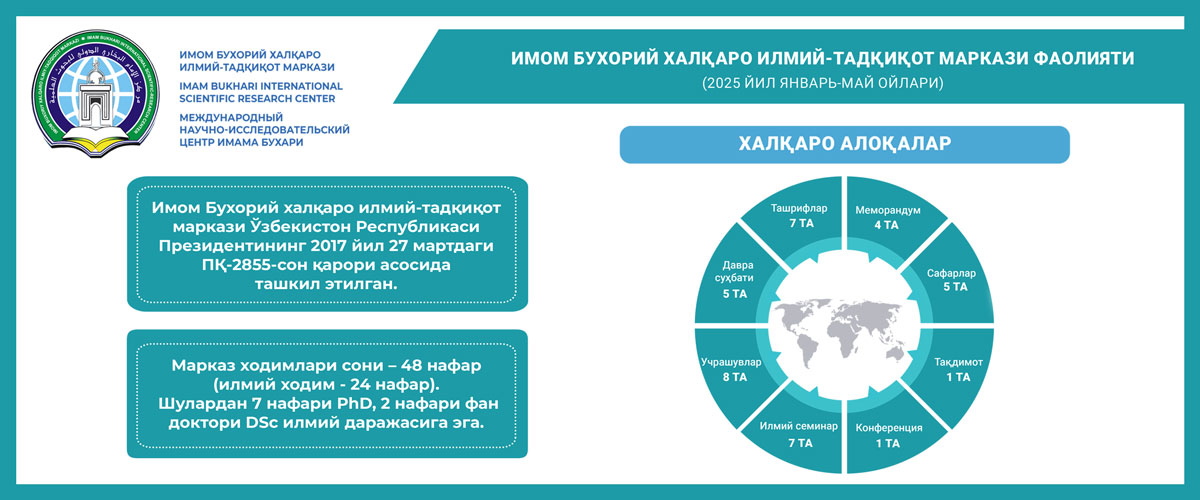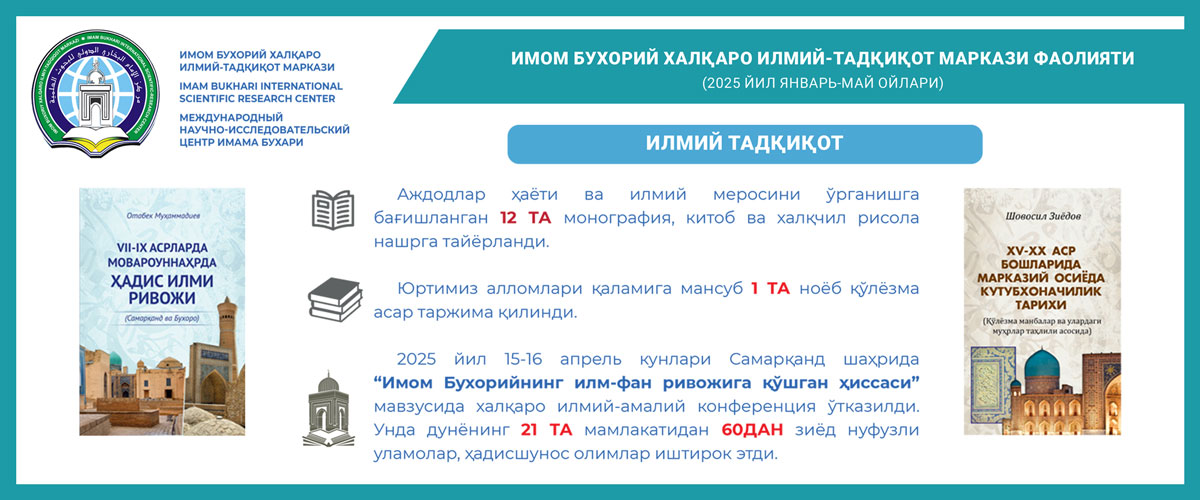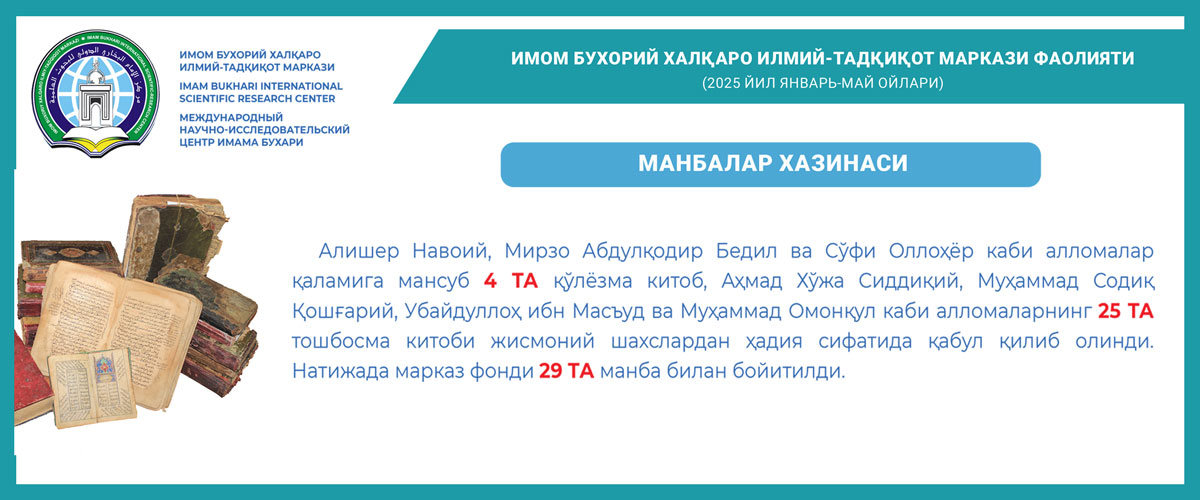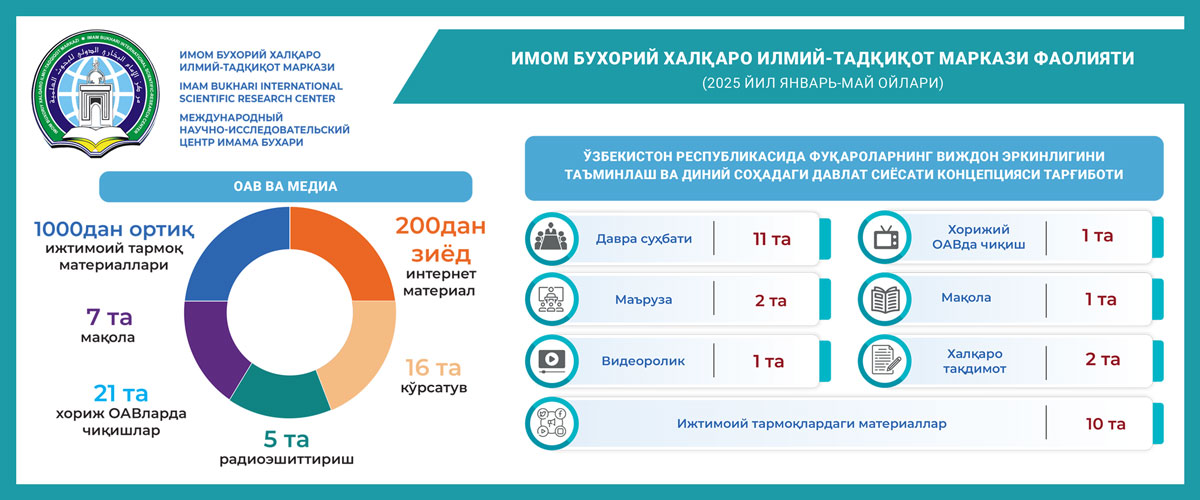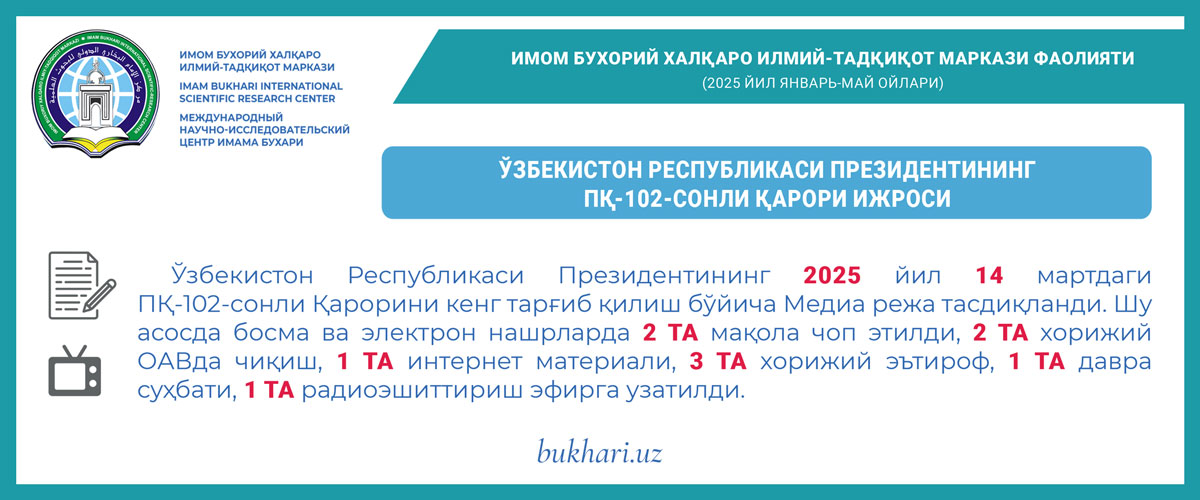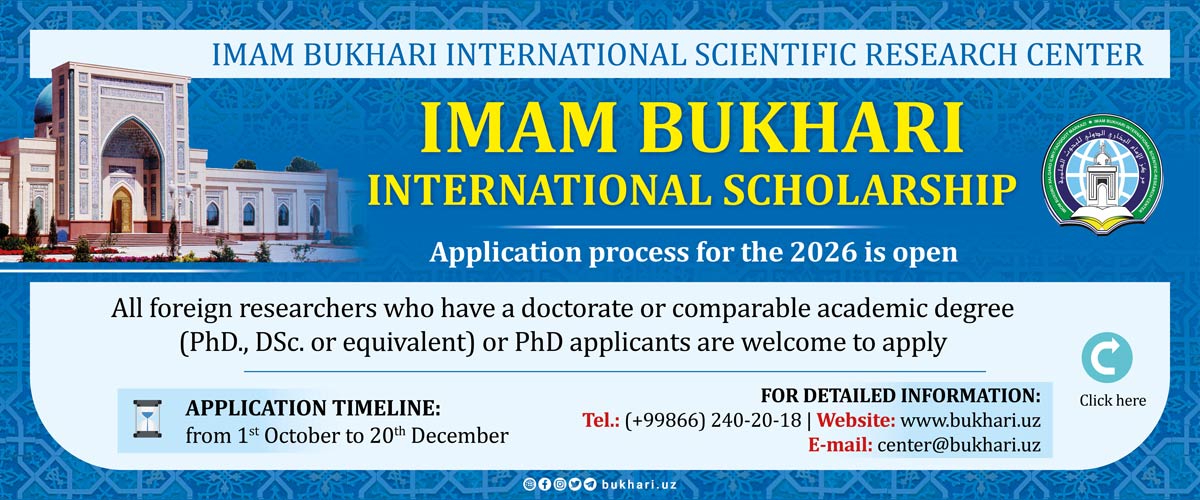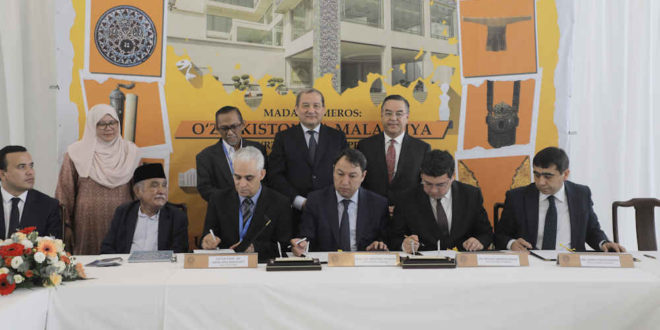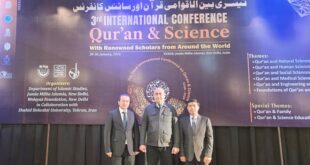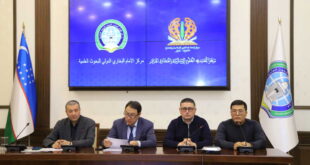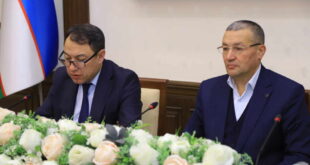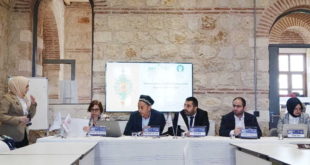On February 4, an international roundtable discussion was held at the Islamic Arts Museum Malaysia in Kuala Lumpur to develop cultural ties between the two countries and to familiarize the Malaysian public with Uzbekistan’s rich history and cultural heritage.
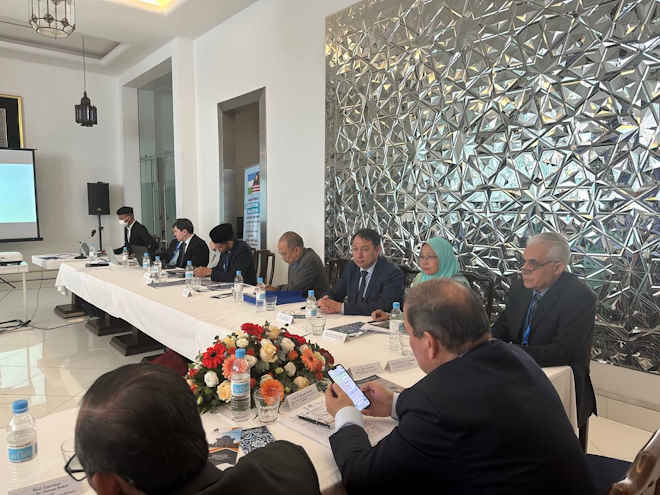
The event, organized with the support of the Ministry of Foreign Affairs of Uzbekistan, was attended by representatives of Malaysia’s leading scientific and cultural institutions, including the “Al-Bukhari” Foundation, the Institute of Islamic Understanding, the Institute of Islam Hadhari, the University Sains Islam Malaysia, the International Islamic University Malaysia, and several research centers.
During the roundtable, the reforms being implemented in Uzbekistan under the initiative of the President, particularly the activities of the Center for Islamic Civilization and the international research centers named after Imam Bukhari, Imam Maturidi, and Imam Tirmidhi, were widely covered through documentary film screenings and presentations.
A number of joint projects were proposed to strengthen cooperation with Malaysia’s Islamic cultural and educational institutions, with a focus on studying and promoting the legacy of Imam Bukhari and other great scholars to the younger generation.
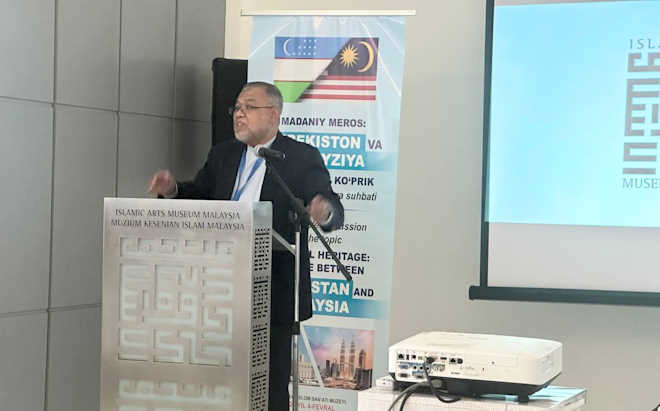
The International Institute of Islamic Thought and Civilization (Malaysia) signed memoranda of understanding with Uzbekistan’s Center for Islamic Civilization and the international scientific-research centers of Imam Bukhari, Imam Maturidi, and Imam Termizi.
One of the key decisions of the roundtable was the establishment of a joint Uzbekistan-Malaysia Scientific Society, bringing together leading researchers and experts specializing in Islamic civilization. Its main objectives include conducting joint scientific research and publications, organizing educational and cultural initiatives, exchanging academic experience and resources, and fostering international dialogue on Islamic heritage issues.
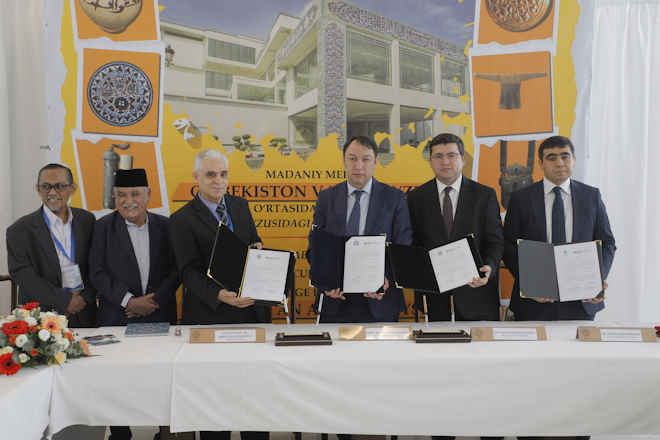
Malaysia presented Uzbek researchers with a special electronic certificate granting access to over 100,000 rare manuscripts and publications. This document will enable the Imam Bukhari International Scientific Research Center and other academic institutions to further deepen their research.
Several initiatives were put forward to strengthen cultural and educational ties between Uzbekistan and Malaysia, including:
- In the field of religious education: strengthening cooperation between Malaysia’s Institute of Islamic Thought and Civilization and Uzbekistan’s Center for Islamic Civilization, as well as the international centers of Imam Bukhari, Imam Maturidi, and Imam Tirmidhi, within the framework of a special program aimed at preventing radicalism.
- In the cultural sphere: organizing a photo exhibition at the Islamic Arts Museum Malaysia dedicated to Uzbekistan’s historical monuments and artifacts, as well as arranging media tours across Uzbekistan for representatives of Malaysia’s religious and educational institutions, journalists, and public figures to explore the country’s historical and cultural heritage.
- In the academic field: actively involving Malaysian scholars in the international scholarship programs named after Imam Bukhari and Imam Maturidi.
- In the scientific field: facilitating joint research between the Institute of Islam Hadhari of Malaysia and the Imam Bukhari International Scientific Research Center on the scientific contributions of Muslim scholars in the field of medicine, as well as studying and restoring the heritage of Imam Bukhari.
- In the spiritual and educational sphere: introducing the special pilgrimage program “Umrah Plus,” allowing Malaysian pilgrims to visit the sacred sites associated with Imam Bukhari, Imam Tirmizi, and Bahauddin Naqshband in Uzbekistan.
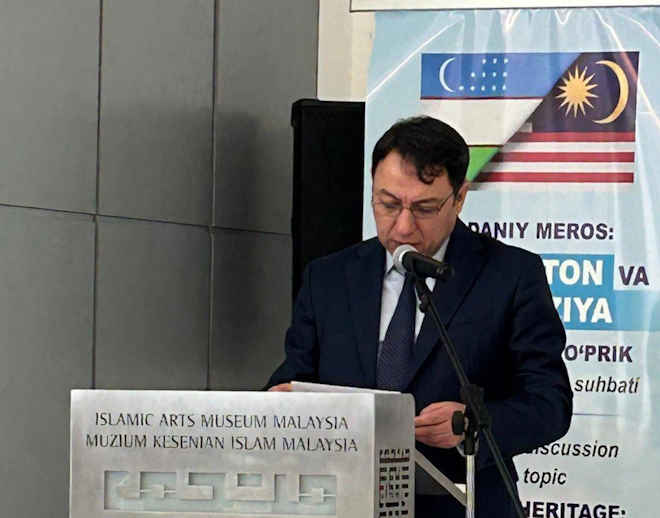
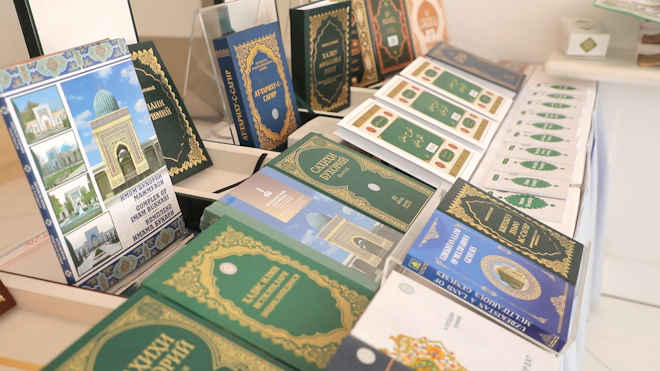
As part of the event, a unique exhibition of books and facsimile editions published by Uzbekistan’s Center for Islamic Civilization, the World Society for the Study, Preservation, and Popularization of Uzbekistan’s Cultural Heritage (WOSCU), and other research institutions was held. Publications by the Imam Bukhari International Scientific Research Center, including “Sharh of Sahih al-Bukhari,” translations of Imam Bukhari’s works, and research by the Center’s scholars, generated great interest among Malaysia’s academic community. As a symbol of strengthening scientific and cultural cooperation, a collection of books was presented to Malaysia’s partner institutions, including the International Institute of Islamic Thought and Civilization, the Institute of Islam Hadhari of Malaysia, and other organizations.
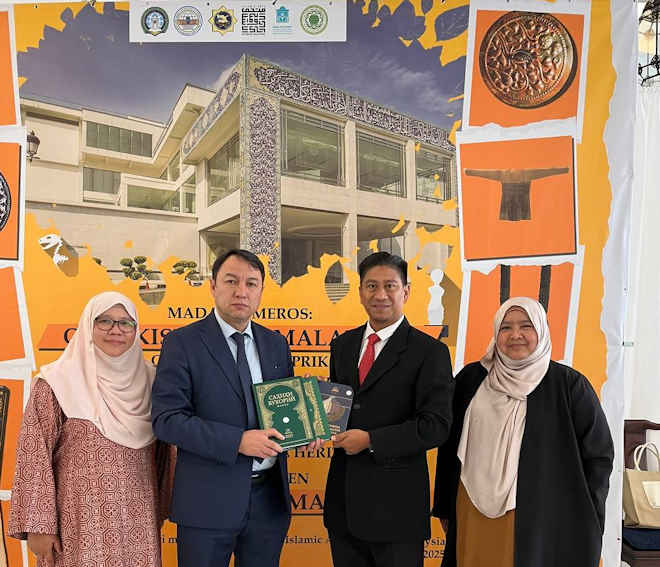
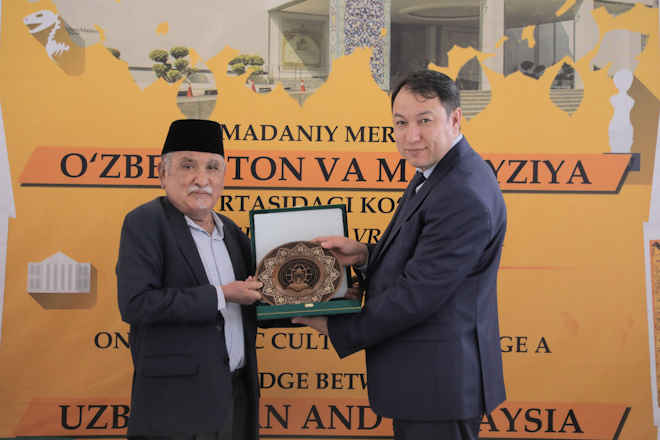
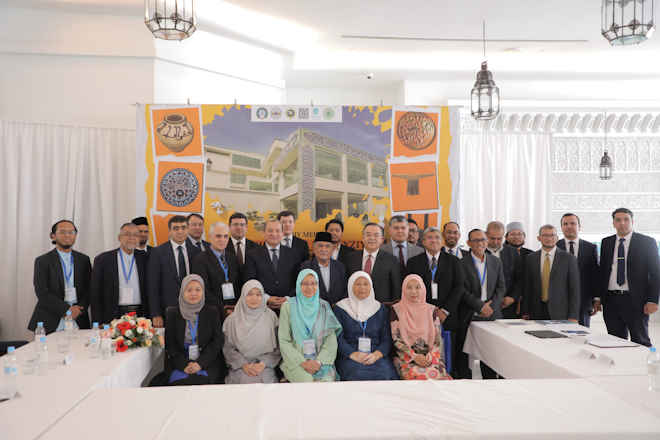
Participants also explored the Uzbek cultural heritage exhibition and other artifacts at the Islamic Arts Museum Malaysia.
 Imom Buxoriy xalqaro ilmiy-tadqiqot markazi bukhari.uz
Imom Buxoriy xalqaro ilmiy-tadqiqot markazi bukhari.uz
